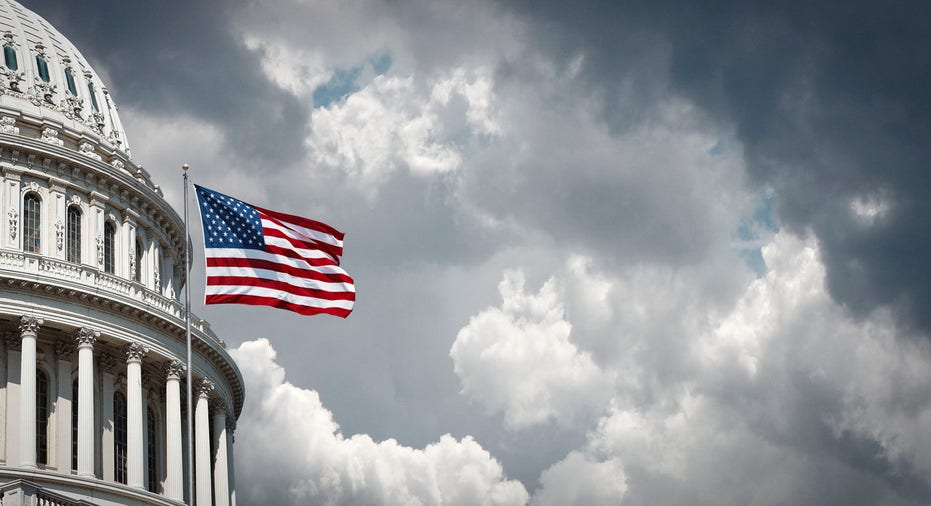Biden doesn't have authority to cancel student debt, Pelosi says: What to do with your college loans

Speaker Pelosi contradicted prominent Democratic lawmakers when it comes to student loan cancellation, saying that Biden doesn't have the executive authority to discharge loans. See what you can do with your loans in the meantime. (iStock)
Student loan forgiveness is on the Biden administration's agenda, but not all Democrats agree on how to get it done. While some are urging President Joe Biden to sign an executive order to cancel a portion of federal student loan debt, others — including the president himself — are unsure if it's possible.
House Speaker Nancy Pelosi said that Biden doesn't have the authority to forgive federal student loan debt at a press conference on Wednesday, contradicting other leading Democrats who are calling on the president to cancel up to $50,000 worth of student loan debt via executive order.
"People think that the President of the United States has the power for debt forgiveness. He does not. He can postpone, he can delay, but he does not have that power. That would… has to be an act of Congress."
Senate Majority Leader Chuck Schumer said Tuesday that all Biden has to do is "flick his pen" to forgive student debt and make America a "more prosperous place." Sen. Elizabeth Warren (D-MA) also said flatly, "The president can cancel $50,000 in student loan debt."
The conversation around what to do – and what can be done – with student loan debt has become more heated as the moratorium on federal student loan payments is set to expire on Sept. 30. Most Democratic lawmakers agree that the student loan moratorium should be extended, but it's still unclear if that will happen.
"Resuming these payments could stall our country's economic recovery. It could bring millions of loan borrowers to the edge of financial crisis," Schumer said.
As it currently stands, there's no telling if President Biden will forgive student loan debt or even extend the COVID-19 federal student loan payment pause. And with payments set to resume on Oct. 1, borrowers may be wondering what to do with their college debt in the meantime.
Keep reading to learn more about your options, from economic hardship deferment to student loan refinancing. If you're ready to refinance your private student loans, shop around for the lowest possible interest rate on an online marketplace like Credible.
98% OF PUBLIC SERVICE LOAN FORGIVENESS (PSLF) APPLICATIONS REJECTED
Refinance while student loan rates are low
Student loan refinance rates are near historic lows, according to data from Credible, which means there's never been a better time to get a better interest rate on your private student loans. There are two primary ways to refinance student loans:
- Refinancing your student loans to a longer term can help you lower your monthly payments. You'll be paying off your college debt for a longer period of time, but this can help you avoid becoming delinquent on your student loans if you can't afford to pay them. Borrowers who refinanced to a longer-term loan on Credible saved more than $250 per month on their student loan payments.
- Refinancing your student loans to a shorter term can save you more money over the life of the loan. Your monthly payments may slightly increase, but you may be able to shave months or years off the life of your loans. Borrowers who refinanced to a shorter-term loan on Credible saved nearly $17,000 over time.
Borrowers with federal student loans should think twice before refinancing, because doing so can make you ineligible for federal protections like deferment and even student loan forgiveness. But if you have private student loans, compare refinancing rates across multiple lenders on Credible to see if this money move is right for you.
BIDEN LAUNCHES INQUIRY TO FIX FAILED COLLEGE DEBT FORGIVENESS PROGRAM
Apply for an extended deferment period
Federal student loan borrowers may be able to request a deferment on their student loans due to economic hardship or unemployment. During the application process, you'll have to disclose some basic financial information, such as your job status, low income and family size, as well as any other federal benefits you receive.
If you meet the eligibility requirements for undue hardship, you may qualify to have your student loan payments paused for up to 36 additional months.
HERE ARE SOME OF THE BEST STUDENT LOAN FORGIVENESS PROGRAMS
Enroll in an income-driven repayment plan
An income-driven repayment (IDR) plan may allow you to reduce your monthly payments as low as $0 based on your current income. There are a few types of IDR plans, and they typically limit payments to 10-20% of your discretionary income. You can enroll in an IDR plan on the Federal Student Aid (FSA) website.
Student loan repayment is a complicated process, but you're not alone. If you need help deciding on what to do with your student loans, get in touch with a knowledgeable loan officer on Credible who can help you compare student loan repayment programs.
BIDEN'S EDUCATION DEPARTMENT HIRES STUDENT DEBT CANCELLATION ADVOCATE
Have a finance-related question, but don't know who to ask? Email The Credible Money Expert at moneyexpert@credible.com and your question might be answered by Credible in our Money Expert column.




















